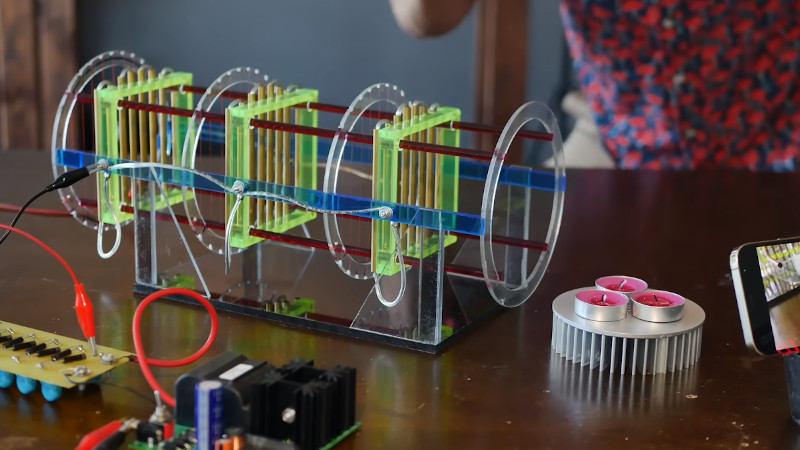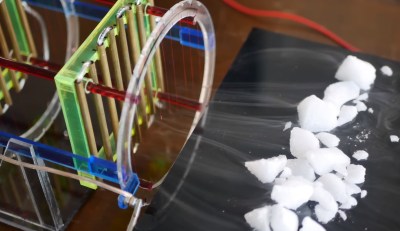
Anyone who’s looked into high-voltage experiments is likely familiar with ion lifters — spindly contraptions made of wire and aluminum foil that are able to float above the workbench on a column of ionized air. It’s an impressive trick that’s been around since the 1950s, but the concept has yet to show any practical application as the thrust generated isn’t nearly enough to lift a more substantial vehicle.
It’s a bit early to suggest that [Jay Bowles] of Plasma Channel has finally found the solution to this fundamental shortcoming of electrostatic propulsion, but his recently completed multi-stage ion thruster certainly represents something of a generational leap for the technology. By combining multiple pairs of electrodes and experimentally determining the optimal values for their spacing and operational voltage, he’s been able to achieve a sustained exhaust velocity of 2.3 meters per second.

While most ion thrusters are lucky to get a piece of paper fluttering for their trouble, [Jay] demonstrates his creation blowing out candles at a distance of a meter or more. But perhaps the most impressive quality of this build is the sound — unlike most of the experimental ion thrusters we’ve seen, the air flowing through this contraption actually makes an audible roaring sound. When the 45 kilovolt supply voltage kicks in it sounds like a hair drier, except here there’s no moving parts involved.
In addition to providing graphs that show how air velocity was impacted by input voltage and the number and spacing of the electrode pairs, [Jay] also pops the thruster on a scale to show that there is indeed a measurable thrust being produced. Admittedly the 22 grams of thrust being generated isn’t much compared to the contraption’s own mass of 490 grams, but in the world of electrostatic propulsion, those are pretty impressive numbers.
[Jay] says he has some improvements in mind that he believes will significantly improve the device’s performance as he works towards his ultimate goal of actually flying an ion-propelled aircraft. We saw MIT do it back in 2018, and it would be great to see an individual experimenter pull off a similar feat. Obviously, there’s still a long way to go before this thing takes to the skies, but if anyone can pull it off, it’s [Jay Bowles].
0 Commentaires